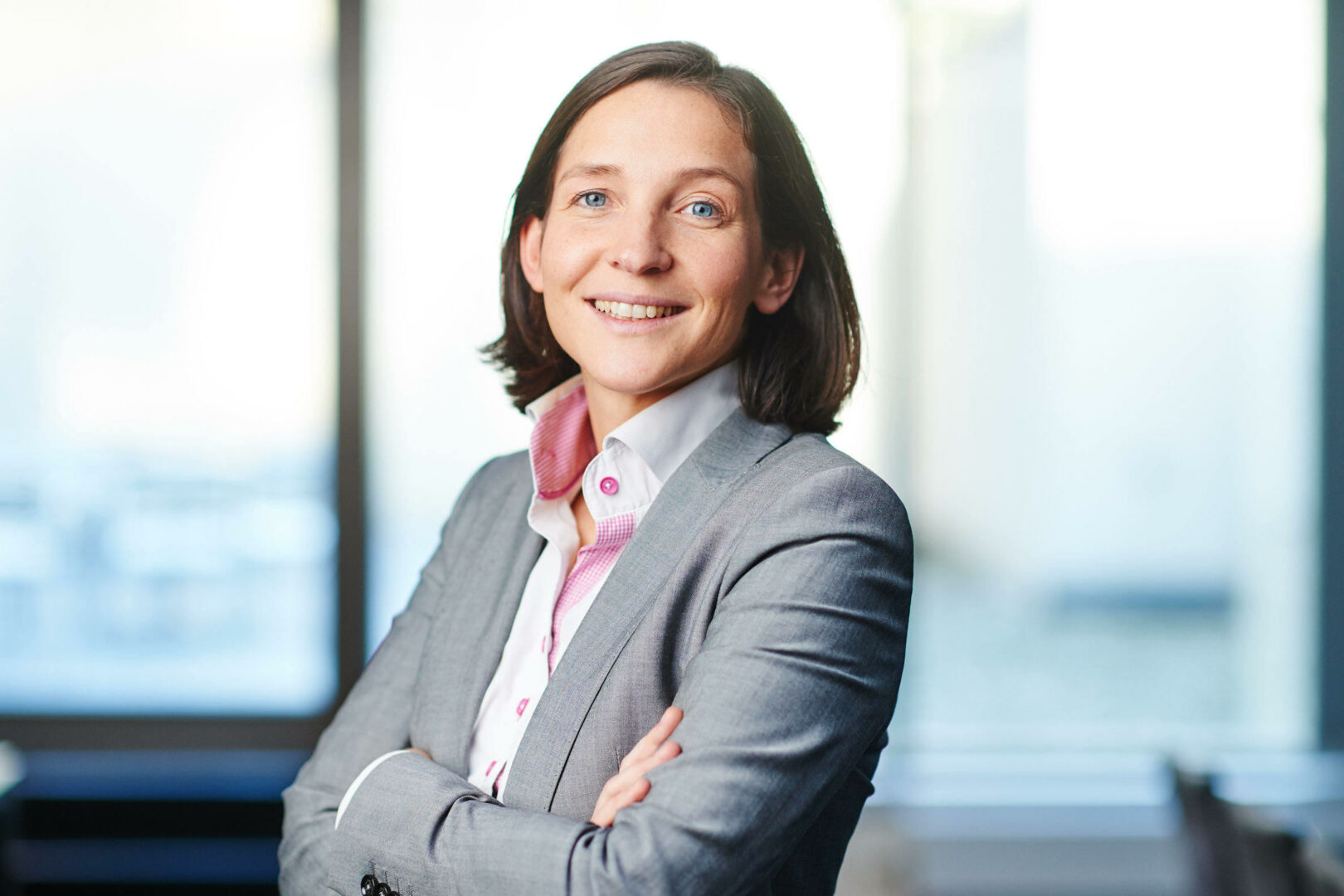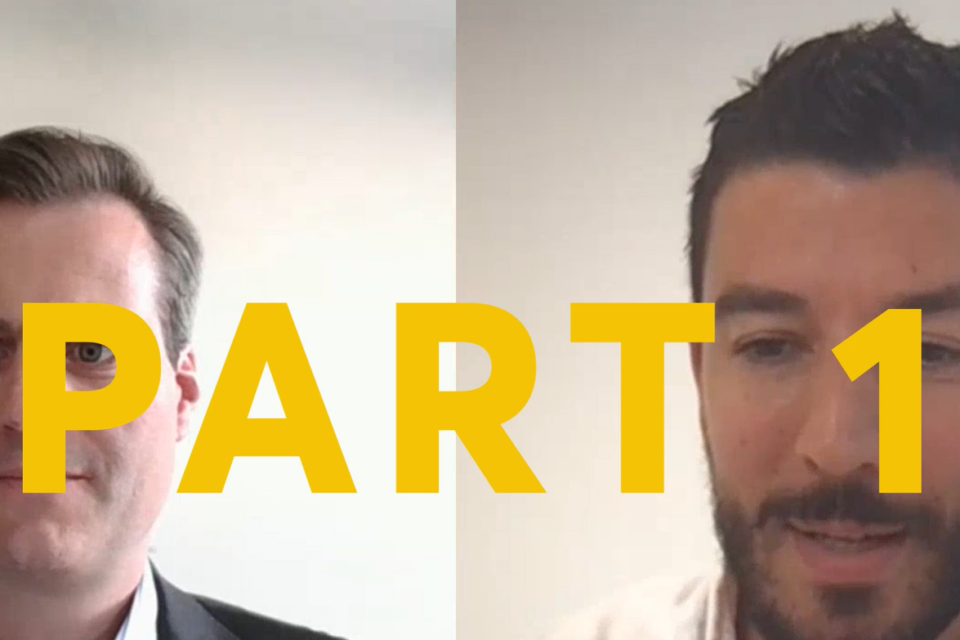Before becoming Google’s Chief Policy Officer in 2020, Karen Massin was CEO of Burson-Marsteller (now BCW). We talked to her in her Burson-Marsteller days about life as one of Europe’s most influential lobbyists and female leaders.
What inspires you about public affairs and motivates you as a CEO?
What inspires me is Europe; I believe in it. That’s why I came to Brussels. I wanted to be part of the process. I think it’s getting more challenging to do that at the moment. It was probably easier 15 years ago, but now we have to manage a more complex environment.
In terms of what motivates me to come to work every day, it’s to provide excellence for our clients. I enjoy the creativity we’re asked to deliver; helping clients to go in the right direction. I’m really happy when our clients are satisfied.
Who have been your most influential role models?
I started at Burson-Marsteller as a junior, so quite a few of my colleagues that are still here have actually been role models for me; Lawrie McLaren, who’s now Senior Adviser for Corporate Purpose and Sustainability, Jeremy Galbraith, who’s now our European CEO. There’s also John Robinson and Peter Linton, who were basically the start of everything relating to public affairs at Burson-Marsteller Brussels 20 years ago and are still senior advisers for us. I have learnt a lot from all of them and they remain my role models.
How has the consultancy world changed during the 15 years you’ve been in the business?
During my time, there have been four phases. The first was when you needed the lobbyist to physically get hold of information that mattered for clients. We would know the right person to approach and get them the text or documents in question.
The second was when the Internet took hold and the documents were more widely available. What was then important was to help our clients understand what to do with this information, what it meant to them and to help them with that process.
More recently, there has been a third phase characterised by the rise of social media and an over-load of information. There is just so much out there. We’re now helping clients to understand, in the midst of this maze of detail, what matters, what doesn’t, how to link things together and come up with the right strategy to achieve their objectives.
I think now we’re seeing the beginning of a new, fourth phase, one that I call the post-truth phase. People are very disenchanted. You provide evidence to decision makers, but this is simply not enough anymore. You need to bring much more than that. You now need to bring real stories of people.
Another thing is that clients have also changed over the last decades. They used to come from industry; they would not be that familiar with how the EU institutions worked, so we would guide them; now they’re extremely EU savvy. They’ve usually had experience within the institutions, so they are looking for a different type of advice. We still need the connections, but we have to be more creative in how we make an impact and how to be remembered. That’s really the biggest change.
The world has become increasingly unstable and unpredictable. How have geo-political developments influenced your business?
The environment is currently so unstable that companies are actually looking for support in finding ways to react much more quickly. They want to be better prepared, so that when something happens, they are ready to react. It’s much more about preparedness in terms of addressing crises.
What are the key traits and skills that you are looking for when recruiting for Burson-Marsteller?
Nowadays, the key traits I look for are greater diversity in terms of background, skills and much more creativity and digital know-how. BMers need to be impactful, they have to know the EU, but also industry very well and they have to be entrepreneurial.
Is there something unique that you look for when hiring?
I’m looking for people with ideas and views, for opinionated people. I need people with the energy to create something new again tomorrow. People with lots of character; that’s what I like.
A trend we see when recruiting for associations in Brussels is the need for narrower, more specialised profiles rather than generalists. Is this the case in the consultancy world too?
Actually, we need both. Our clients expect us to know them and their industry, so we need specialised people that understand, for example, the aviation sector or can grasp what geo-blocking is – so really very specialised. At the same time, we need people capable of seeing the wider perspective. As one of the larger consultancies in Brussels, with over 50 multilingual consultants, we are in the fortunate position of recruiting people who tick both of those boxes.
This is really useful for clients, because they need us to be able to help them both understand their specific issue and to be aware of wider issues coming up in parallel, which may delay or impact their current concern. For example, Brexit will inevitably slow down quite a number of policy developments. Our clients need to understand this, so that we can help them navigate at each level.
You rose from intern to CEO at Burson-Marsteller over a 15 year career, becoming one of the first female CEOs in consultancies in Europe. Do you think you’ve broken the glass ceiling in Brussels?
I think it’s always good to have more women in leadership positions, but I think we need to take into account all types of diversity. Not just women; we also have to look at attracting more people from different cultural backgrounds, people of different ethnicities, people who are younger and older. So there is a wider issue to look at.
However, I have to say I have never felt there was a glass ceiling at Burson-Marsteller. I was very lucky to have always been supported by Jeremy, who is now my European CEO. He always gave me opportunities to grow. I think it must have been the same with other colleagues I have in the consultancy world, because if you look at my peers at FTI, Fleishman, H+K and APCO, they’re also female CEOs. Maybe that’s a trait of our industry; perhaps it’s a bit more open to that.
That said, I am actually the first female CEO at Burson-Marsteller Brussels and also the first non Anglo-Saxon.
However, I think the ceiling is there in general. It’s not just in Brussels, it’s everywhere. We all have a responsibility to educate and change mind-sets within companies. At Burson-Marsteller, we have a practice that we call Advantage Women. We try to help companies reflect on the place of women both internally and externally because women are their consumers, their target audience, their employees. You need to engage with them differently.
What does it take for a young woman to move into to a CEO position?
I always felt I had a lot of support. David Earnshaw was our previous CEO and I was the COO for three years, so I learned ‘on the job’. When I became CEO, he was the President so he was still helping me. So it has been a natural process.
What’s your way of recharging the batteries? Any hobbies you have that you think might come as a surprise?
I used to go climbing and ride horses. I also used to do pottery. And then, I got married and had three children, so what I do now is yoga and climbing with my kids, which is a lot of fun.
When I have time, I dedicate it to my children and doing things together. I’m a normal person, just trying to strike the balance between being a mother and an active female professional. It’s not always that easy, but it’s a lot of fun!


